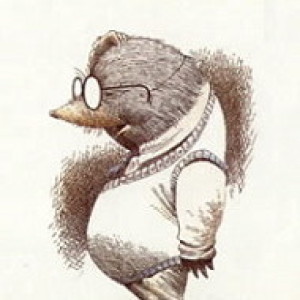The jackdaw, a chattering bird.
This is what Aberdeen University's Bestiary, written and illuminated in England around the year 1200 AD, has to say about the Jackdaw.
Here begins the account of the birds. Birds have a single name, avis, but a variety of species. For just as they differ in appearance, so they differ in nature. Some are guileless, like doves; others are cunning, like the partridge; some come obediently to man's hand, like hawks; others shun it, like the wild birds called garamantes. Some take pleasure in man's company, like the swallow; others love the solitary life of the wilderness, like turtle-doves. Some feed only on the grain they find, like the goose; others eat flesh and think only of their prey, like the kite. Some live communally, that is, they fly together in flocks, like starlings and quail; others roam the skies alone, that is, they keep to themselves because they take their prey by surprise, like the eagle or the hawk and others of that sort. Some have twittering voices, like the swallow; others sing the sweetest of songs, like the swan and the blackbird. Some imitate the words and voices of men, like the parrot and magpie.
It is known that many bird-names are formed from the sound of their call, like grus, the crane; corvus, the raven; cignus, the swan; bubo, the owl; milvus, the kite; ulula, the screech-owl; cuculus, the cuckoo; garrulus graculus, the jackdaw, and others. For the particular call they give has taught man what name they should be given.
The jackdaw, a chattering bird. Some men are not suited to be monks.

Comments
Sign in or get an account to comment.


